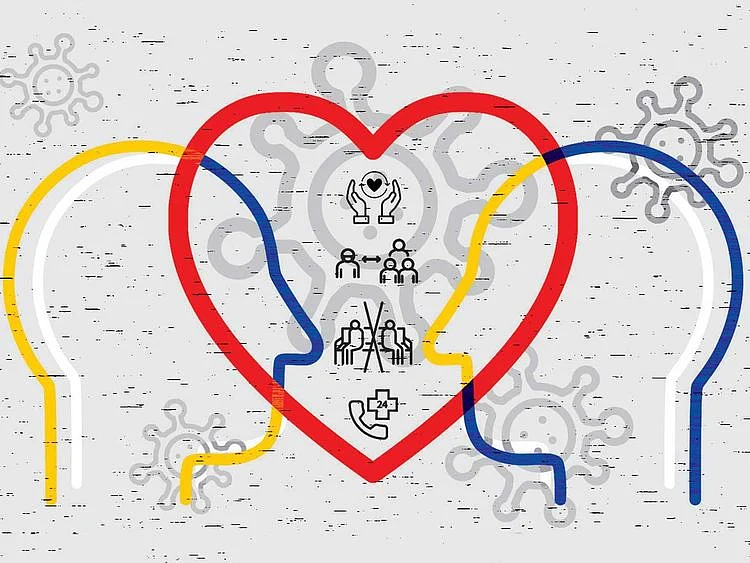Empathy is back on agenda as offices resume
Employers should not leave that for individuals to handle on their own

These months have been tumultuous. Our lives have been changed immeasurably in almost every area. Underlying our new day-to-day reality is a far deeper sense of shift and discomfort, as well as flailing confidence.
In recent months, we lost our sense of perceived control and it has left us reeling and at an emotional crossroads. We have been simultaneously under the instructions of multiple government and health organisations, not to mention corporates, and far removed from an ability to implement any of our own. Suddenly the ability to plan, to predict next quarter’s revenues, or to move with purpose has been been cut off.
The impact of this is far reaching, and whilst we were experiencing increasing rates of anxiety, depression and burnout before the crisis, the COVID-19 months indicate an ever higher spike in such symptoms.
“The impact of the pandemic on people’s mental health is already extremely concerning,” said Dr. Tedros Adhanom Ghebreyesus, Director-General of the World Health Organization. “Social isolation, fear of contagion, and loss of family members is compounded by the distress caused by loss of income and often employment.”
Get back into your networks
As our cities attempt to rebuild, and we slowly emerge from homes, it will be mutual connectivity and understanding that will allow us to prosper. Empathy is at the core of both of these. We can expect the need for emotional support in the workplace to have increased and, with staff having now been isolated for an extended period of time, business leaders will need to focus on individualizing their shared sense of purpose.
Seeing people as unique has become a need as we realise that we have all uniquely experienced the last 90 plus days. It means empathising with the realities of each of those team members, both from a mental health perspective and their potential anxiety about the virus outside the home. And in terms family members - the elderly, the young, the pregnant - they may still have at home.
Regenerating trust and conversation via open and empathetic communication will be a key differentiator in those that thrive in the months immediately after a return to the office.
Feed that need
Research indicates that being able to use empathy is crucial for mental health and adds immeasurably to relationship success. This is due to our innate need to be connected to others. Consider the worst of the world’s penalties for law breakers - solitary confinement. It is well documented that being alone, segregated and separated from others is quite literally the worst punishment we can be submitted to.
Yet, so often we overlook this critical need for empathetic connection. As we come back, more than ever, a shared understanding that creates harmonious and effective relationships is as key to our businesses growth as it is to our emotional wellbeing.
On a micro level, empathy will allows us to better co-exist with colleagues and teams, providing a more collaborative environment. On a macro-social level, where we increasingly see a disregard toward truly connecting as people first and foremost, the strengthening of our shared empathy is critical.
Our ability to thrive, both as individuals and as organisations, in the months ahead will depend on it.
- Mimi Nicklin is author of ‘Softening The Edge’ and an influencer.
Sign up for the Daily Briefing
Get the latest news and updates straight to your inbox
Network Links
GN StoreDownload our app
© Al Nisr Publishing LLC 2026. All rights reserved.